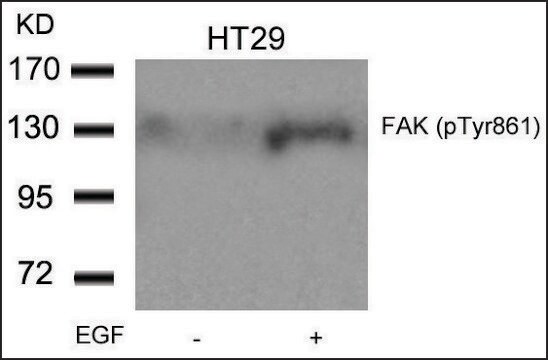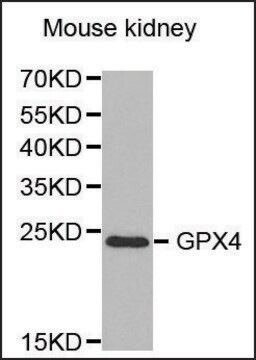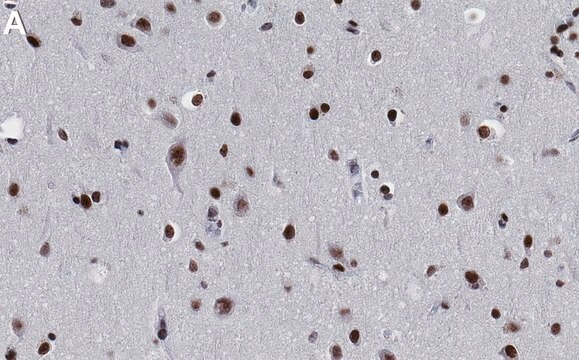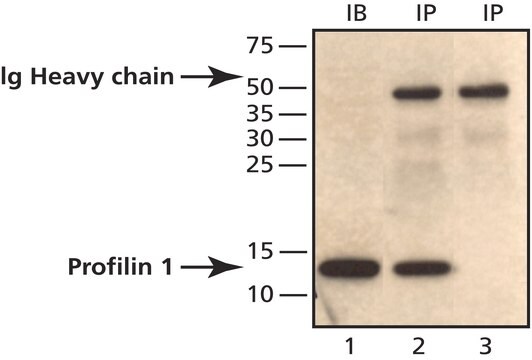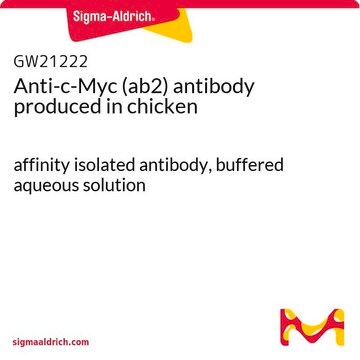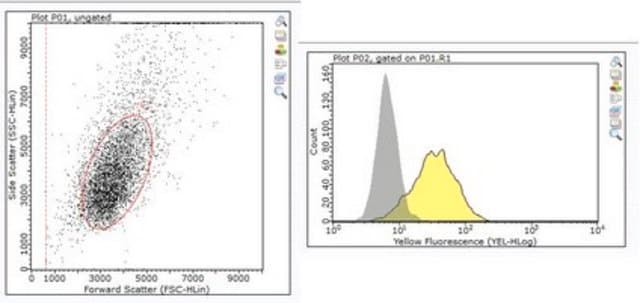SAB4300318
Anti-c-Myc Tag Antibody
rabbit polyclonal
Synonym(s):
Anti-bHLHe39 antibody produced in rabbit, Anti-c-Myc antibody produced in rabbit, Anti-v-myc myelocytomatosis viral oncogene homolog (avian) antibody produced in rabbit
About This Item
WB
western blot: 1:500-1:1000
Recommended Products
Product Name
Anti-MYC (Ab-58) antibody produced in rabbit, affinity isolated antibody
biological source
rabbit
Quality Level
conjugate
unconjugated
antibody form
affinity isolated antibody
antibody product type
primary antibodies
clone
polyclonal
form
buffered aqueous solution
mol wt
~60 kDa
species reactivity
human, rat, mouse
concentration
1 mg/mL
technique(s)
immunohistochemistry (formalin-fixed, paraffin-embedded sections): 1:50-1:100
western blot: 1:500-1:1000
isotype
IgG
immunogen sequence
(L-P-T-P-P)
NCBI accession no.
UniProt accession no.
shipped in
wet ice
storage temp.
−20°C
target post-translational modification
unmodified
Gene Information
human ... MYC(4609)
Immunogen
Features and Benefits
Target description
Physical form
Disclaimer
Not finding the right product?
Try our Product Selector Tool.
recommended
Storage Class Code
10 - Combustible liquids
WGK
WGK 1
Flash Point(F)
Not applicable
Flash Point(C)
Not applicable
Choose from one of the most recent versions:
Certificates of Analysis (COA)
Don't see the Right Version?
If you require a particular version, you can look up a specific certificate by the Lot or Batch number.
Already Own This Product?
Find documentation for the products that you have recently purchased in the Document Library.
Our team of scientists has experience in all areas of research including Life Science, Material Science, Chemical Synthesis, Chromatography, Analytical and many others.
Contact Technical Service